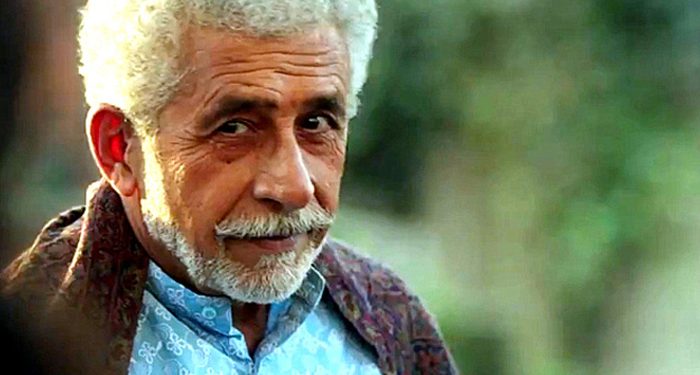Jayakrishna Sahu
Naseeruddin Shah surprised the nation December 20, 2018, by saying he was worried about the safety of his children in the country. He said his Hindu wife and he had not brought up their children with a religious identity, and if in future any mob caught their children and asked their religion, they may not be able to give an answer.
In a modern democracy such as India, every citizen is constitutionally guaranteed the freedom of expression. Naseeruddin has done nothing illegal by venting his feelings about the prevailing situation in the country. People would have appreciated him and would not have questioned his motive, had he not issued another statement January 4 through Amnesty International, India.
In that video Naseeruddin says: “In the name of religion, walls of hate are being built. Innocents are being killed. The country is being filled with a horrific hatred and cruelty. Those who stand against this injustice are having their offices raided, their licences cancelled, their bank accounts frozen and their voices silenced. Artists, actors, scholars, poets are being stifled. Journalists, too, are being silenced.”
Not even a cynic would paint such a frightening picture of India. Barring the Pakistan-sponsored terror in Kashmir Valley, the rest of the country has been free from major communal riots or terrorist attacks for the past four years. But Naseeruddin seems to have a hidden agenda behind his utterances.
He has obviously become the mouthpiece of the five urban Naxals arrested August 29, 2018, charged with connections to banned political outfit CPI (Maoist) and their tacit roles in provoking a riot in Bhima-Koregaon January 1 last. Also, Naseeruddin’s invective is intended to defend Amnesty International, India, headquartered at Bangalore, which was raided by the Enforcement Directorate last August for the financial irregularities to the tune of Rs 36 crore. What right does Naseeruddin have to condemn the Country when the matter is sub-judice and the accused are not yet acquitted by due process of law?
If India is such a dangerous place for the Muslims, how could their population in the country rise from under 2 per cent in 1947 to 16-18 per cent at present?
There appears to be a method to this madness, and projecting the country as a dangerous place for people, particularly the minorities. On August 9, 2018, just after retiring from vice-presidency, Hamid Ansari stunned the country by saying there was a sense of insecurity and unease among Muslims in the country. He could say this even after living for 80 years in this country. But another Hamid Ansari, a 37-year-old who returned to India after serving 7-years in prison in Pakistan expressed great relief and said with great emotion, “Mera Bharat Mahan”.
It is obviously the beginning of the return of the second part of intolerance bogey, as the general election is approaching. The first one came after Modi came to power in 2014 and just before the Bihar Assembly election in October-November 2015. It paid rich electoral dividends in Bihar for the ‘secularists’, and Lalu Yadav got a fresh lease of political life when his party got the highest number of seats in the Assembly.
People such as Naseeruddin have every right to oppose and condemn politicians and governments; but they should not be hell-bent on maligning the country. If India is such a dangerous place for the Muslims, how could their population in the country rise from under 2 per cent in 1947 to 16-18 per cent at present? Why has no Indian, including Muslims, left this country by out of feeling discriminated against? Why do Muslims from Pakistan and Bangladesh, including hordes of Rohingya from Myanmar find India much safer than Muslim countries?
If Naseeruddin and friends seriously ponder over and answer these questions with clear hearts, they can invariably realise how great and tolerant India is.
The writer is a Bolangir-based advocate.






































